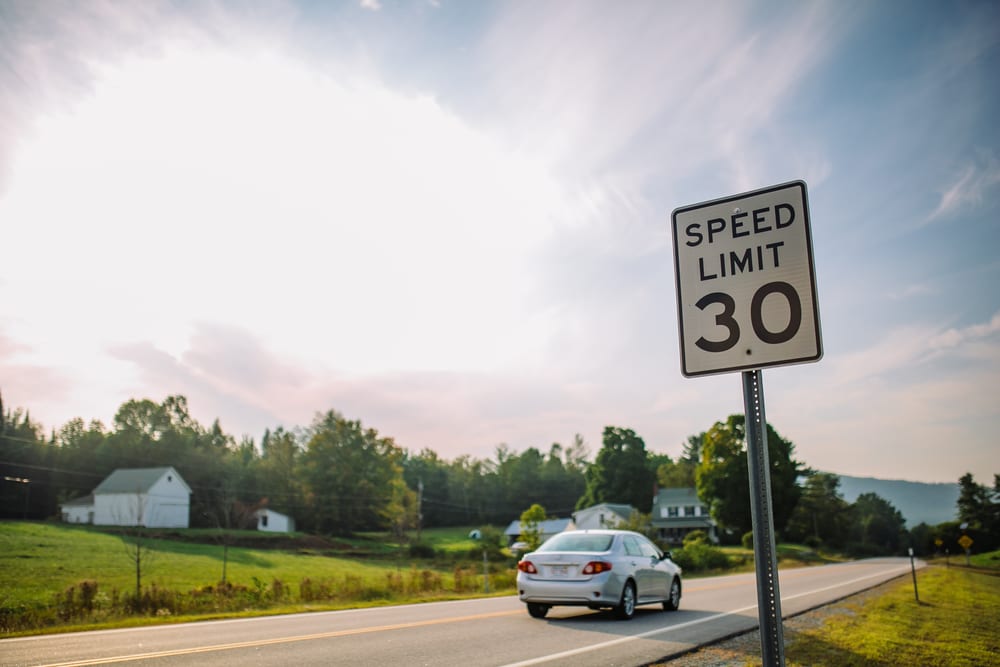

Following is an overview of the laws, limits, and fines as they relate to speeding traffic violations in the state of Oregon.
Speed limits in Oregon
Oregon has one of the highest maximum speed limits in the United States, and in 2014 raised the limit to 80 mph on rural interstates and highways.
70 mph: rural freeways and interstates
65 mph: maximum speed for trucks where posted speed limit is 70 mph
65 mph: some rural two-lane highways
55 mph: most other highways
25 mph: public parks
25 mph: residential districts that are outside cities and urban growth boundaries with a population of over 100,000
25 mph: along the ocean shore
20 mph: school zones during posted hours
20 mph: business districts
15 mph: alleys
Oregon code on reasonable and prudent speed
Maximum speed law:
According to section 811.100(1) of Oregon vehicle code, “A person commits an offense if driving a vehicle at a speed greater than is reasonable and prudent, having due regard to all of the following: the traffic; the surface and width of the highway; the hazard at intersections; weather; visibility; and other conditions then existing.”
Minimum speed law:
Sections 811.130(1) and 811.315(1) states:
“No person shall impede the normal and reasonable movement of traffic.”
“A person driving at less than the normal speed of traffic shall drive in the right-hand lane available for traffic or as close as practicable to the right-hand curb or edge of the roadway.”
Due to variations in speedometer calibration, tire size, and margins of error in speed-detecting technology, it’s uncommon for an officer to pull a driver over for going less than five miles above the speed limit. However, technically any amount over can be considered a speed violation so best practices are to stay within the limit.
Oregon has a mix of absolute and prima facie speed laws. This means that in some cases, a driver may argue that they were driving safely, even if exceeding the posted limit. Alternatively, a driver may choose to go to court and claim their innocence based upon one of the following:
The driver may oppose the determination of speed. In order to claim this defense a driver must know how his or her speed was determined and then learn how to disprove its accuracy.
A driver may claim that an emergency situation caused the driver to break the speed limit in order to prevent injury or damage to themselves or others.
The driver may claim a case of mistaken identity. If a police officer clocks a driver speeding and subsequently has to find them again in traffic, it’s possible that they could have made a mistake and pulled the wrong car over.
Penalty for exceeding the speed limit in Oregon
First-time violators may:
Be fined up to $75 or up to $600 depending upon the class of violation
Have their license suspended for up to 30 days under the Driver Improvement Program
Penalty for reckless driving in Oregon
Driving 30 mph over the speed limit is automatically considered reckless driving.
First-time violators may:
Be fined up to $5,000
Be sentenced to up to one year of jail time
Have their license suspended for up to 90 days
Violators may be required to participate in the Driver Improvement Program.



